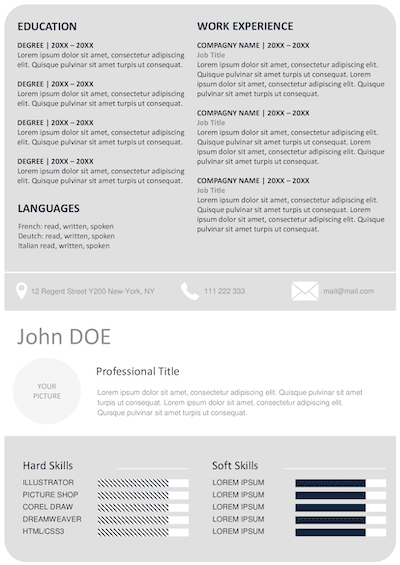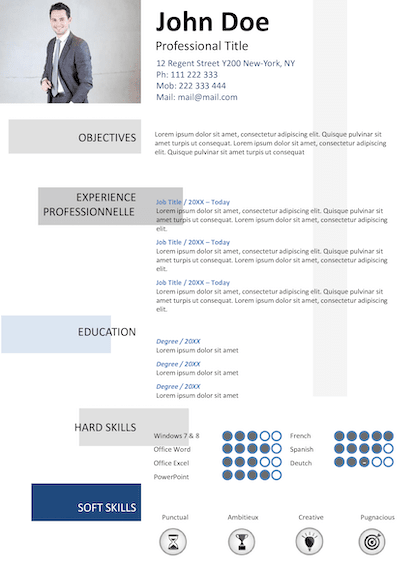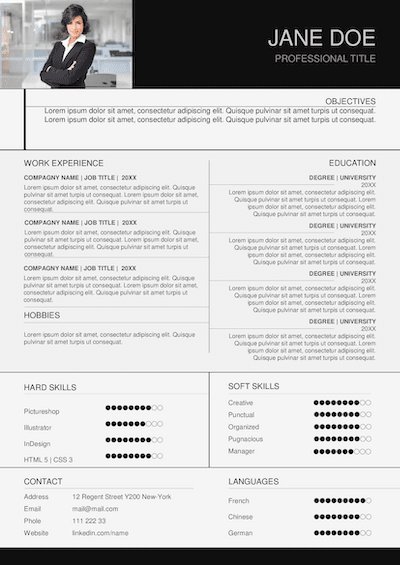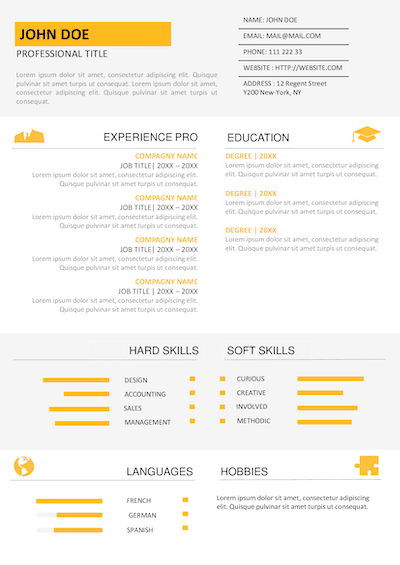How to prepare to a Job Interview ?
Your interview success, or failure, could be determined before you ever see an interviewer. While it is important to utilize face to face interview tactics, it is also necessary to pay attention to certain things while preparing for your interview. These tips could mean the difference between landing your dream job and it just being a dream.
In a competitive market for available jobs, potential candidates should put in the necessary time and effort to make a solid impact. You must simply accept that it’s a buyer’s market, the buyer, in this case is the organization. Your first job as the seller is to sell yourself. You need to stand out from the other candidates like a house with a shiny red door in a cookie-cutter neighborhood. Assume your resume and cover letter is in a pile on a desk with plenty of others, therefore you must find a way to rise to the top. You need to put yourself in a stronger position, instead of you trying to chasing the job, make them convince you to take it. Your mindset dictates the demeanor you portray. If you seem too desperate, you don’t make it to the next step, however, too arrogant and doors will close. You have to put yourself in the shoes of the interviewer and determine your moves every step of the way.
Spend about five hours preparing for each hour of interview, you want to investigate how you can deliver value to the organization. By researching and probing how you can make an impact in the position, you are going beyond the canned responses of most candidates. Your resume should announce that you are qualified for the position. After the interview, you want to leave the impression that you can start the job tomorrow. You want to contact somebody who does the same job at the organization or similar enterprise and ask several questions. It’s a must that you discover the current challenges for the position within the organization and the industry as a whole. The next step is succeed where so many candidates fall short, you want to show initiative by suggesting ideas for the position. Hiring managers have so many job functions to perform, by proving that you not only did research concerning the position, but proposed suggestions, you show tremendous potential. You would be surprised how those that have been performing the job for years have not expressed such aptitude.
Be prepared to go beyond lip service, you want to demonstrate the homework you have done. Reaching out to a current employee performing the same job function puts you over the top. Don’t be shy or feel like you are intruding. Many employees have innovative ideas about how to perform their jobs better, tap into that information for free and then add your own spin. Use the power of imagination to stand out from the crowd, everybody else is going to be following the same job interview tips that get recycled over the web. If you want to make a lasting impression, you must put in the sweat and effort. Find someone who you can practice with until it comes out natural. Landing an offer in a tough economy requires considerable effort. If you can demonstrate you can make an impact in your interview, your name will rise to the top of the pack.
12 Essential Job Interview Tips
Prepare – Know your Future Employer
Nothing stands out more in an interview than someone who knows the business that they are trying to become a part of. If you are able to research the company, or even your interviewers, you will pick up on key terminology and procedures that will astound your potential employers. This can be a tedious process though. Your goal is to appear as if you have been working for the company and know their systems and lingo, and that can take some time. It will be time well spent if you get the job.
Dress Code – Look Professional
While knowing a great deal about the company can stand out, appearing unprofessional can undo it. You should dress business professional for the interview, unless you are explicitly told by your employer not to. This means a full suit, and is viewed as common sense in the corporate world. Something small, like forgetting to wear a tie, can severely hurt your chances of getting the job or a second interview.
Practice Makes Perfect
The goal is to be relaxed during your interview. If you are relaxed, then you will appear confident. Confidence is then interpreted as aptitude. Your employer will assume that you are a good fit if you are confident in your abilities. To ensure that you are relaxed as possible, you should practice your interview skills as often as possible in the days leading up to your big interview. The best practice is actually going on several job interviews, but that can be a tall order. If you need to, you can get a friend or relative to interview you. It may not seem like it, but a small amount of practice will help work out those pre-interview jitters.
Get Some Sleep
When you are tired everything suffers. A good night sleep will go a long way to improving your interview skills. If you don’t get to sleep at a decent time, you will risk performing at a lower level or even oversleeping. Nothing is worse than waking up in a panic because you know that you are going to be late. If that happens, your entire game plan could go out the window.
Timeliness
Make sure that you give yourself enough time to arrive to the interview a little early. You don’t want to get there too early because your interview will feel like you are rushing them. The general rule of thumb is to get there about five to ten minutes before your scheduled interview time. If you do get there extremely early, don’t be afraid to sit in your car and brush up on some potential interview questions.
The Handshake
A firm handshake implies confidence and enthusiasm, while a limp one will exude apathy. Be careful not to go too far and hurt their hand. You are nervous, and adrenaline can do wonders. Make sure you know your own strength. So smile, look your interviewer in the eye, and give them a memorable handshake.
Attitude – Smile and Show Your Teeth
A warm and open personality is a valuable trait in today’s world of commerce. People with this trait can communicate with their coworkers, employees, and customers in a friendly way. One thing that these people have in common is their contagious smiles. Smiling can lighten the mood of your interview and let everyone know what a happy person you are.
Posture – Don’t Slouch
Think of posture as you thought of your handshake. If you slouch, you risk looking apathetic to your would be employer. Too rigid and you might be thought of as uptight. A perfect posture will send the message that you are eager to start your new position with vigor.
Answering Interview Questions
Most interview questions you encounter are going to be behavioral. These are used to determine how you are going to react during certain stressful situations. If you lose your cool during the interview then you are automatically out. The same can happen if your answers are not well thought out. Many people think that they have to answer the questions as soon as it is asked. This is a misconception. You should take a few seconds and present to your interviewers a well thought out response. Not only will you answer their questions properly, but they will see that you are able to think before you speak.
The interview questions can also be job specific. Companies won’t hire people for specialized jobs unless they are sure that they can be trained to do the job. You may find yourself staring at some difficult problems to solve. If you are applying for a specialized job, it would be in your benefit to research some common interview questions asked for that position.
Share your Ideas
While doing your research on the company, you may be struck with a couple ideas that could help make them more money or operate more efficiently. You should present your ideas to your interviewer at the end of the interview when they ask you if you have any questions, or anything to add. This will reinforce that you did your research on the company, and that you are already thinking of yourself as part of the team. You will appear invested in the company. Even if your idea gets shot down, you will still have achieved your goal.
Following Up
Just because the interview is over doesn’t mean you don’t have more work to do. Make sure that you send your interviewer a thank you card or email. If you are sending an email, you should send it the day after the interview. This will help keep your name in front of your interviewer’s eyes without looking too aggressive. If you are sending a letter you should get it in the mail as soon as possible. The goal is to get your letter in front of the interviewer one or two days after the interview is completed. This should be done for every interviewer you have.
Eggs
You have probably heard of the term “Don’t put all of your eggs in one basket”. After your interview is over it could take weeks to hear back from them. Don’t just sit at home and hold your breath. You should keep putting your resume out there and continue to interview while you wait to hear back from other companies. You may even find something better.
Interviewing is an art and in order to be successful you will have to become an artist. One missed brush stroke and everything could be ruined. However, if you are able to keep a steady hand you could find yourself looking at something beautiful when you are done. Following these interview tips doesn’t automatically guarantee that you will land the job of your dreams, but you are far more likely to.



